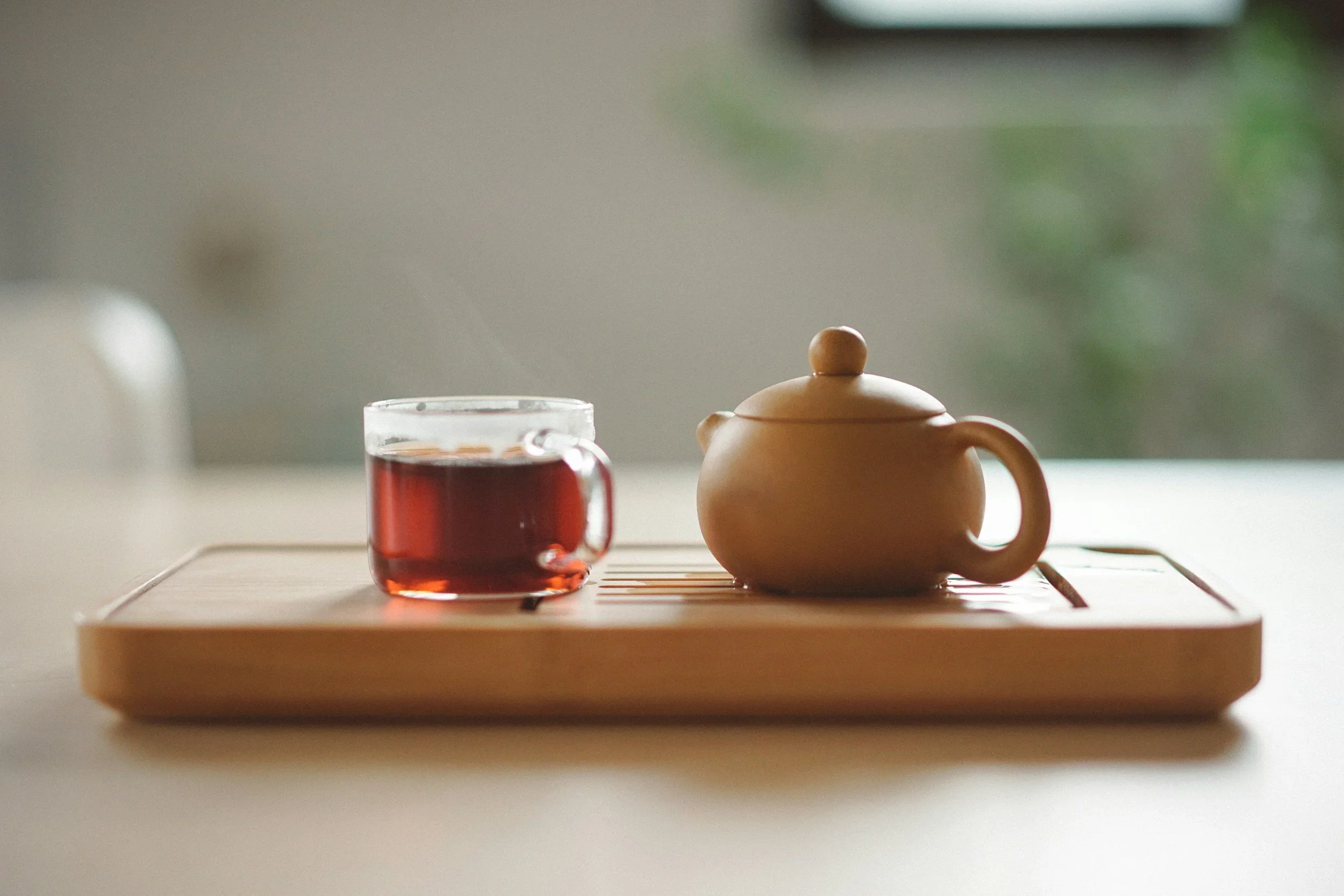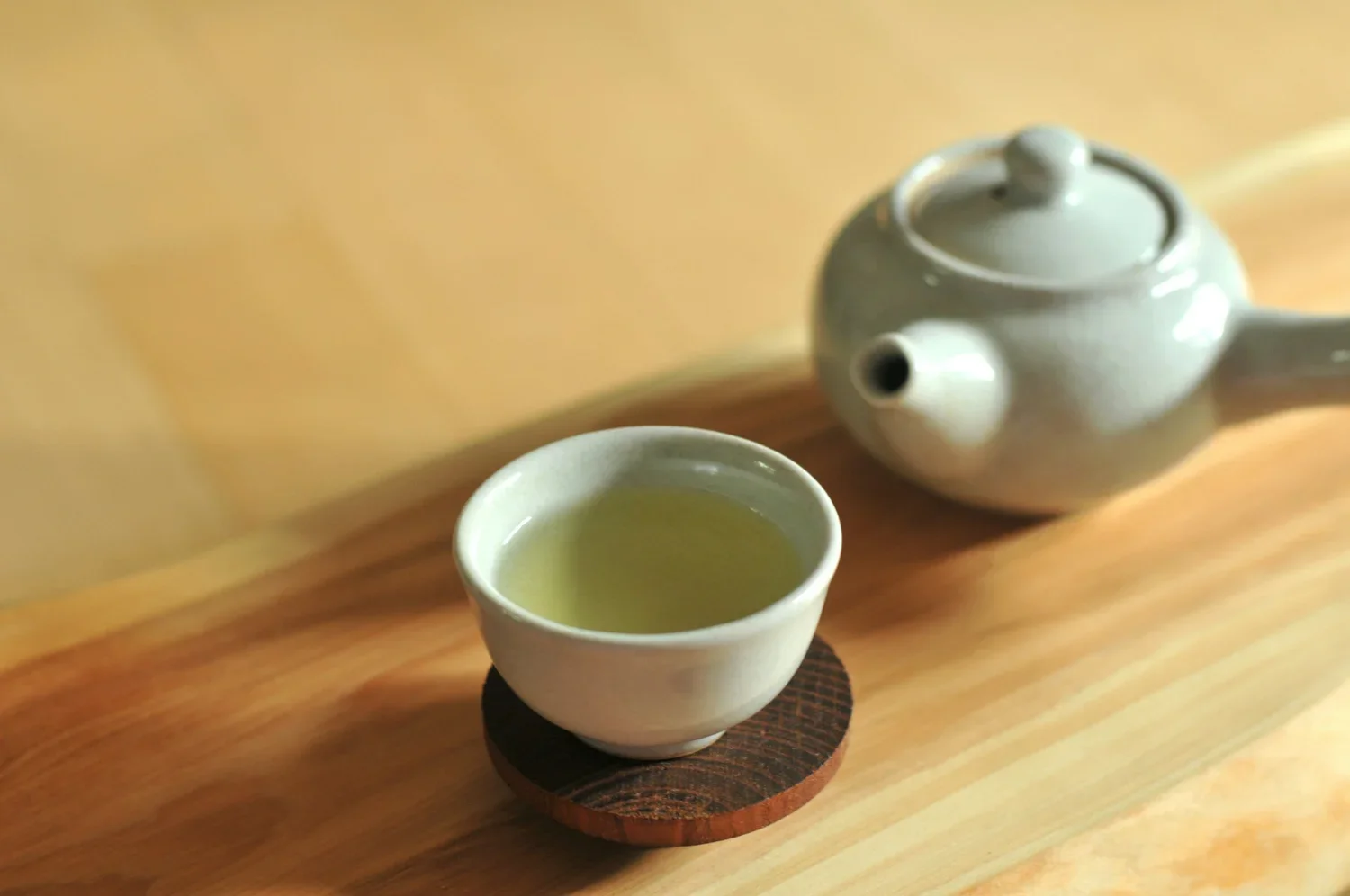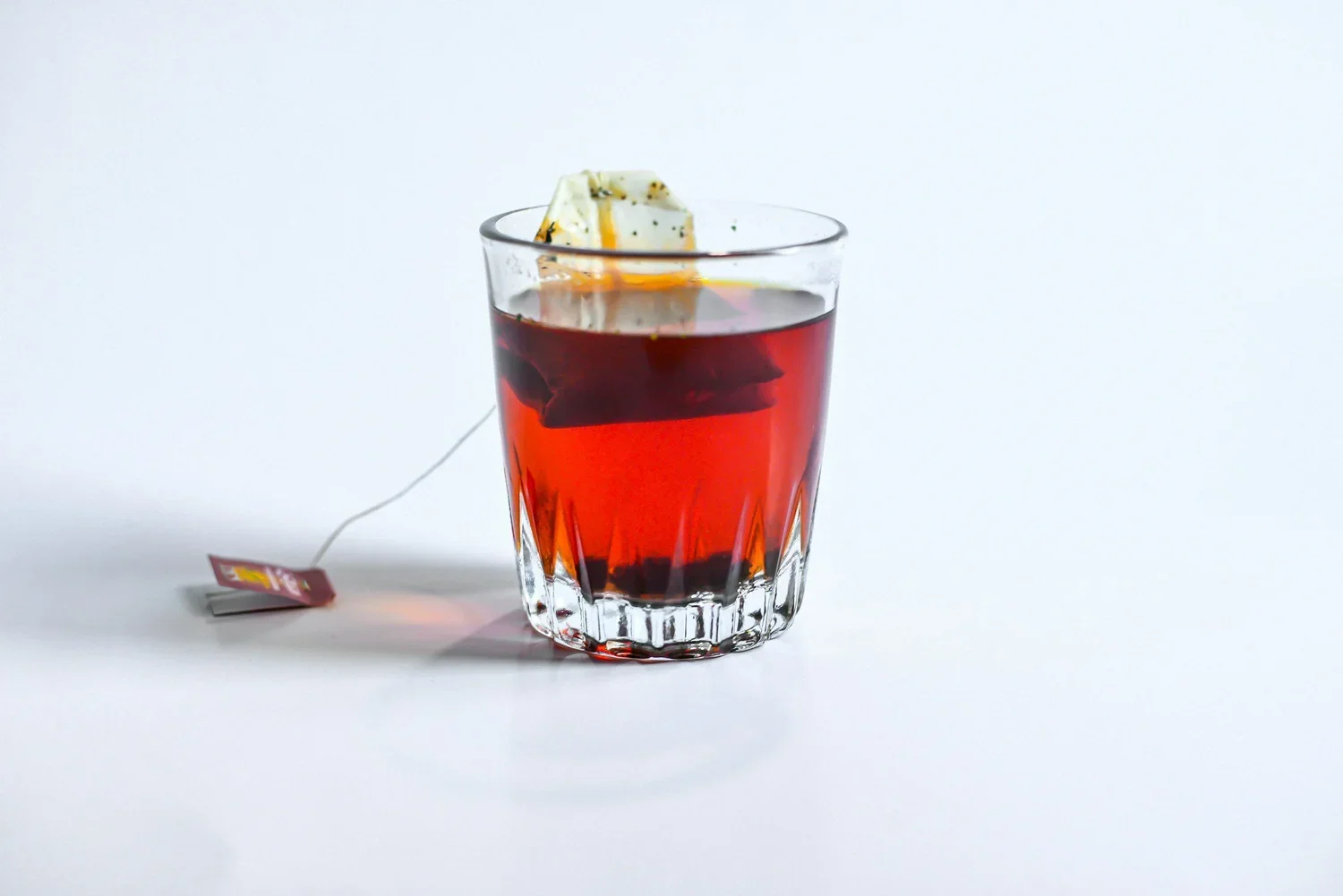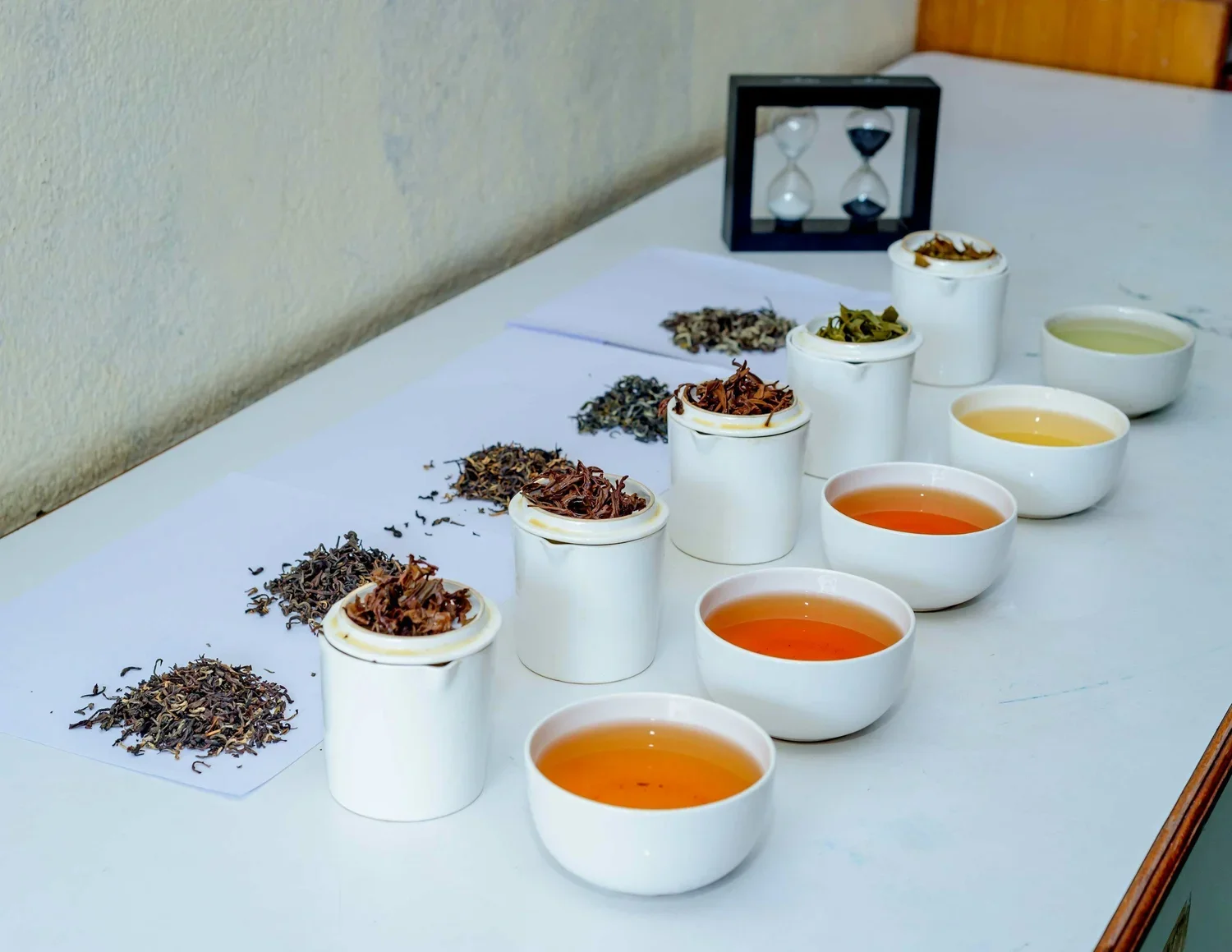Health Benefits of Drinking Black Tea: Does Black Tea Keep You Full?
Did you know that after water, tea is the most popular beverage on the planet?
It’s a legacy that stretches back thousands of years, and for good reason!
More than just a comforting ritual, a cup of black tea is a powerhouse of compounds that can support your well-being.
But beyond the widely discussed benefits, you might be wondering about something more specific: Can drinking black tea actually help you feel full and manage your appetite?
In a world where we're constantly seeking ways to feel our best, this is a fantastic question.
The short answer is yes, it can play a role!
But how?
This article dives deep into the science behind how black tea affects satiety, your overall health, and your wellness goals.
We'll explore everything from its impact on gut health and weight management to how it stacks up against its famous cousin, green tea.
So, let’s put the kettle on and uncover the amazing world of black tea together!
What Are the Health Benefits of Black Tea?
Black tea is more than just a caffeinated beverage; it's a rich source of beneficial compounds that contribute to your overall health.
The unique way it's processed gives it a distinct profile of benefits that have been noted by health enthusiasts and researchers alike.
From supporting your heart to sharpening your mind, the positive effects of regular tea consumption are impressive.
How Does Black Tea Affect Your Health?
The secret to black tea’s power lies in its rich concentration of polyphenols, particularly flavonoids and theaflavins.
These compounds act as potent antioxidants, which help combat cellular damage in the body.
According to a study published in the International Journal of Health Sciences, drinking black tea can decrease inflammation and reduce the risk of various chronic conditions.
Here’s a breakdown of its key health impacts:
Boosts Heart Health: The flavonoids in black tea are true champions for your cardiovascular system.
Research indicates that regular consumption is associated with a lower risk of heart disease by helping to reduce LDL ("bad") cholesterol and blood pressure.
A comprehensive review in the Annals of Internal Medicine found that people who drank two or more cups of tea daily had a lower risk of death from cardiovascular disease and stroke.Improves Gut Health: A healthy gut is the foundation of overall wellness.
Black tea acts as a prebiotic, promoting the growth of good gut bacteria while inhibiting harmful ones.
This improved gut microbiome, as shown in studies like one published in the journal Nutrients, not only aids digestion but is also linked to a stronger immune system and even better metabolic health.Enhances Focus and Alertness: Need a mental pick-me-up without the jitters of coffee?
Black tea contains a unique combination of caffeine and an amino acid called L-theanine.
This duo works together to provide a calm, stable, and focused energy, improving alertness and cognitive function without the typical caffeine crash.May Reduce Cancer Risk: While no food is a silver bullet, the antioxidants in black tea have shown promise in fighting cancer.
The National Cancer Institute has noted that polyphenols in tea may help prevent tumor growth, with some studies suggesting a reduced risk for certain cancers like skin and oral cancer.
Are There Any Weight Loss Benefits from Drinking Black Tea?
Yes, black tea can be a valuable partner in your weight management journey.
Its benefits go beyond simply being a low-calorie beverage.
The flavonoids in black tea have been shown to help increase metabolism and promote the breakdown of fat.
One of the most exciting findings relates to how black tea works through the gut.
A study from UCLA revealed that black tea polyphenols alter the gut microbiome in a way that can lead to weight loss.
By increasing beneficial gut bacteria and forming metabolites that control liver energy metabolism, black tea helps shift the body toward a leaner profile.
This means that while you're sipping on a delicious cup, you're also creating an internal environment that is more efficient at managing weight.
For those looking for a convenient and perfectly brewed cup to support their goals, stopping by a ShareTea location for a Classic Black Tea is an excellent choice.
What Nutrients Are Found in Black Tea?
While black tea isn't a significant source of macronutrients like protein or fat, it is packed with micronutrients and powerful plant compounds.
An 8-ounce cup of plain black tea is virtually calorie-free and contains:
Flavonoids: These are the primary antioxidants in black tea, including theaflavins and thearubigins, which are responsible for its dark color and many of its health benefits.
L-theanine: This amino acid promotes relaxation and focus.
Caffeine: A natural stimulant that enhances alertness.
Trace Minerals: Black tea contains small amounts of essential minerals like manganese, which is crucial for bone health and metabolism, as well as potassium.
How Does Black Tea Compare to Green Tea?
Both black and green tea originate from the same plant, Camellia sinensis, but they undergo different processing methods that change their chemical composition and flavor.
This processing difference is the key to understanding their unique characteristics.
What Are the Key Differences Between Green and Black Tea?
The main distinction lies in oxidation.
To make black tea, leaves are harvested, rolled, and allowed to fully oxidize—a chemical reaction where the leaves are exposed to air, turning them from green to a dark brownish-black.
This process develops the deep, malty flavors black tea is known for and creates unique polyphenols called theaflavins.
Green tea, on the other hand, is heated shortly after harvesting (usually by steaming or pan-firing) to prevent oxidation.
This preserves its green color, lighter flavor profile, and a high concentration of powerful catechins, particularly epigallocatechin-3-gallate (EGCG).
While both teas are incredibly healthy, as highlighted by Healthline, their different antioxidant profiles offer slightly different benefits.
If you're curious about the different tastes, ShareTea offers both Classic Black Tea and Classic Green Tea, allowing you to experience the contrast firsthand.
Does Black Tea Contain More Caffeine Than Green Tea?
Generally, yes.
Black tea typically contains more caffeine than green tea.
An 8-ounce cup of black tea has about 47 milligrams of caffeine, while the same amount of green tea has around 29 milligrams.
For comparison, a standard cup of coffee can have 95 milligrams or more.
This makes black tea an excellent choice for a morning or early afternoon energy boost that's less intense than coffee.
The caffeine content can vary depending on the specific type of tea leaf, brewing time, and water temperature.
For an in-depth look at this topic, you can explore Does Black or Green Tea Have More Caffeine?.
Which is Healthier: Green Tea or Black Tea?
This is like asking if apples are healthier than oranges—both are fantastic for you, just in slightly different ways!
Neither tea is definitively "healthier" than the other; the best choice depends on your personal health goals and taste preference.
Green tea shines with its high EGCG content, which has been extensively studied for its anti-inflammatory and cancer-fighting properties.
Black tea boasts unique theaflavins from the oxidation process, which are particularly effective at supporting heart health and altering the gut microbiome for weight management.
Ultimately, both teas are rich in health-promoting antioxidants.
The best approach is to choose the one you enjoy most, as consistency is key to reaping the benefits.
Or better yet, enjoy both!
Can Drinking Black Tea Help with Fullness?
Now, for the main event: the connection between black tea and feeling full.
Satiety is a crucial factor in managing calorie intake and avoiding overeating.
The exciting news is that black tea can indeed play a supportive role here.
Does Black Tea Contribute to Satiety?
Yes, evidence suggests that black tea contributes to satiety.
A study published in Food & Function found that regular consumption of black tea was associated with a notable increase in satiety before meals.
This feeling of fullness can help you naturally reduce portion sizes and snack less throughout the day.
The mechanism is twofold.
First, the simple act of drinking a warm, zero-calorie beverage can fill your stomach and signal fullness to your brain.
Second, the polyphenols in black tea appear to influence gut hormones related to appetite, such as ghrelin (the "hunger hormone") and peptide YY (which promotes fullness), helping you feel satisfied for longer.
How Many Cups of Black Tea Should You Drink Daily?
To reap the health and satiety benefits, studies generally point to drinking between two to four cups of black tea per day.
The FDA considers up to 400 milligrams of caffeine a day to be safe for most healthy adults, which is equivalent to about eight cups of black tea.
However, moderation is key.
Drinking two to three cups daily is a great target to enjoy the benefits without overdoing the caffeine.
For a perfectly portioned and delicious option on the go, consider grabbing a freshly brewed tea from ShareTea.
What Are the Effects of Black Tea Consumption on Appetite?
Regular black tea consumption can have a positive effect on appetite regulation.
Beyond promoting a feeling of fullness, it helps stabilize blood sugar levels.
Preventing sharp spikes and crashes in blood sugar is essential for controlling cravings for sugary or high-carb foods.
Furthermore, the influence of black tea on the gut microbiome can indirectly affect appetite.
A healthier gut composition is linked to better communication between the gut and the brain, which plays a role in signaling hunger and satiety more effectively.
This makes black tea a smart, strategic beverage choice for anyone looking to manage their appetite naturally.
What Are the Possible Side Effects of Black Tea?
While black tea is overwhelmingly safe and healthy for most people, it's wise to be aware of the potential side effects, which are almost always related to its caffeine content when consumed in excess.
Are There Any Risks Associated with Drinking Black Tea?
For most people, drinking black tea in moderation (up to 4-5 cups daily) poses very few risks.
However, excessive consumption can lead to caffeine-related issues such as:
Anxiety and restlessness
Difficulty sleeping or insomnia
Headaches
Irregular heartbeat or palpitations
It's also worth noting that the tannins in tea can slightly inhibit the absorption of non-heme iron (the type found in plant-based foods).
If you have an iron deficiency, it's best to drink tea between meals rather than with them.
For specific concerns, including drinking black tea during pregnancy, it's always best to consult a healthcare provider.
You can find more information in articles like Is Black Tea Safe During Pregnancy?.
How Does Black Tea Affect Blood Pressure?
The effect of black tea on blood pressure is interesting.
The caffeine can cause a temporary, slight increase in blood pressure shortly after consumption.
However, long-term, regular consumption has been associated with a reduction in blood pressure.
Multiple studies, including a meta-analysis published in Nutrition Reviews, have found that drinking black tea regularly can help lower both systolic and diastolic blood pressure, likely due to its flavonoid content improving blood vessel function.
This makes it a heart-healthy beverage choice over the long run.
What Should You Know About Black Tea and Caffeine?
Caffeine is a key component of what makes black tea a great focus-enhancing drink, but it's important to understand it.
An 8-ounce cup of black tea contains roughly 40-70 milligrams of caffeine—about half that of a cup of coffee.
This moderate amount is effective for increasing alertness without overwhelming the system.
Individual sensitivity to caffeine varies.
If you're sensitive, you might want to limit your intake or avoid it in the evening.
The presence of L-theanine in tea helps to smooth out the stimulant effect of caffeine, leading to a more "alert calm" rather than a jittery buzz.
Are There Different Types of Black Tea?
The world of black tea is vast and flavorful, with different varieties offering unique tasting notes based on where they are grown and how they are processed.
Exploring these can be a delicious adventure for any tea lover.
What Are the Various Types of Black Tea Available?
There are many types of black tea, each with a distinct character.
Some of the most popular include:
Assam: A strong, malty tea from India, often used in breakfast blends.
Darjeeling: Also from India, this tea is lighter and more floral, often called the "champagne of teas."
Ceylon: From Sri Lanka, it has a crisp, citrus-like aroma and a bold flavor.
Keemun: A Chinese tea with a smooth, slightly fruity, and smoky flavor.
Earl Grey: A black tea blend flavored with oil of bergamot, giving it a distinctive citrusy and floral taste.
English Breakfast: A robust blend of different black teas, typically including Assam, Ceylon, and Kenyan teas.
Some people also wonder about the relationship between different tea types, such as oolong.
To learn more, check out Is Oolong Tea Black Tea?.
How Do You Choose the Best Black Tea for You?
Choosing the best black tea comes down to personal preference.
If you enjoy a strong, bold cup to start your day, an Assam or an English Breakfast blend is a great choice.
For a more delicate, afternoon tea, a Darjeeling might be perfect.
The best way to find your favorite is to experiment!
Try different single-origin teas and blends to discover what you enjoy most.
For a consistently high-quality and delicious cup, you can always rely on the expertly sourced brewed teas at ShareTea, where quality is guaranteed.
How to Incorporate Black Tea into Your Daily Routine?
Making black tea a regular part of your day is easy and enjoyable.
Whether you prefer it hot, iced, or as a base for a more creative drink, there are endless ways to make it work for your lifestyle.
What Is the Best Time to Drink Black Tea?
The best time to drink black tea depends on your goals and your sensitivity to caffeine.
In the morning: It's a fantastic replacement for coffee to kickstart your day with a focused, stable energy boost.
Before a workout: The caffeine can enhance performance and endurance.
Mid-afternoon: It's perfect for beating the afternoon slump and staying productive.
Before meals: Drinking a cup before eating can enhance satiety and help with portion control.
Due to its caffeine content, it's generally best to avoid drinking black tea in the late evening to prevent it from interfering with your sleep.
Can You Drink Black Tea with Other Beverages?
Absolutely!
Black tea is incredibly versatile.
You can enjoy it plain, but it also serves as a fantastic base for many other popular drinks.
At ShareTea, we use high-quality black tea in many of our beloved beverages.
You can enjoy it in a creamy Classic Pearl Milk Tea, a sweet Honey Black Tea, or even mixed with fruit flavors in our refreshing Fruit Tea series.
These delicious options make it easy and enjoyable to get your daily dose of black tea benefits.
How to Brew the Perfect Cup of Black Tea?
Brewing a great cup of black tea at home is simple, but a few details can make all the difference.
For more detailed instructions, you can read our guide on How Long to Steep Black Tea.
Here are the basics:
Use fresh, cold water: Start with good quality water for the best taste.
Heat water to the right temperature: For black tea, just off the boil (around 200-212°F or 93-100°C) is ideal.
Steep for 3-5 minutes: Use one teaspoon of loose-leaf tea or one tea bag per 8 ounces of water.
Steeping for less time will yield a lighter flavor, while longer will make it stronger and more astringent.Enjoy!
Drink it plain, or add lemon, honey, or milk to your liking.
Of course, for those days when you want a perfect, hassle-free cup, why not let the experts handle it?
Visit your nearest ShareTea to experience our vibrant flavors and perfectly prepared teas. Want to find the best boba near me?
Explore the Nearest ShareTea Location and discover your new favorite drink!
Ready to explore the delicious world of tea and its amazing benefits?
Visit your nearest ShareTea to experience the vibrant flavors we offer!
Share the moment with ShareTea.
Find a store or explore our full menu today!











